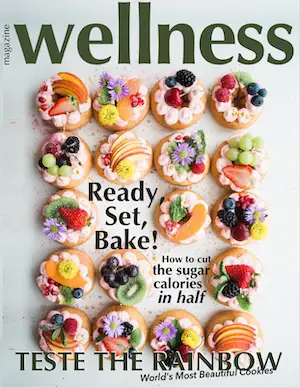
A survey assessing Americans’ health-related behaviors and attitudes found 71% rate their overall health and wellness as good (54%) or excellent (17%). The Whole-Person Health Poll was conducted online by The Harris Poll on behalf of the American Osteopathic Association.
Americans were asked about their work, sleep and exercise habits, as well as their concerns regarding politics, the environment, access to healthcare and more. The findings suggest Americans are doing the best they can within a challenging environment.
“The good news in this survey is that most people are doing the right things. They’re getting enough sleep, not burning themselves out at work, and, on average, exercising more than twice the recommended amount,” says Rick Pescatore, DO, an osteopathic emergency physician. “On the other hand, when we think about whole-person health, we also consider a number of factors outside people’s control, and we’re seeing things that need improvement.”
What needs to improve personally?
The overall picture was positive, however, socioeconomic disparities emerged. While 71% of Americans rated their overall health and wellness as good or excellent, that was true for only 60% of those with a household income of less than $50k, and 81% of those with a household income of $100k or more.
When asked what areas in their lives are most in need of improvement, the top two choices among Americans were physical health (42%) and financial stability (41%).
Mental health came in third (29%) among Americans; however, its need for improvement was higher among younger age groups: 18-34 (44%), 35-44 (37%), 45-54 (29%), 55-64 (20%), and 65 and older (10%).
“It’s definitely true that mental health has become more mainstream in the past couple decades and more of a priority to the younger generations,” says Dr. Pescatore “However, this poll might be showing that younger people are also more acutely affected by outside stressors, like financial instability and political divisiveness.”
What’s missing in healthcare?
Americans were asked what health services they would like to have better access to (i.e., geographically close and/or more affordable). More than a third (39%) said dental care, while (33%) said primary care or a family physician.
Nearly a quarter (24%) want better access to emergency care, while 21% said psychology/psychiatry, and 19% said specialty care (e.g., oncology, gastroenterology, cardiology).
“This was one of the most concerning findings from the survey,” said Dr. Pescatore. “That between a fifth to over a third of Americans want better access to these critical components of healthcare is very alarming.”
What keeps us up at night?
When asked which issues are among the most concerning to you/your family, healthcare affordability was the primary concern, chosen by 51% of Americans.
Political divisiveness (i.e., Democrats’ and Republicans’ inability to work together on policies and laws that benefit Americans) was second, chosen by 38% of Americans. However, political divisiveness was more of a concern for older age groups than younger age groups: 18-34 (25%), 35-34 (27%), 45-54 (38%), 55-64 (46%), and 65 and older (59%).
Environmental health (e.g., pollution, climate change) was a close third, also chosen by 38% of Americans, though it was relatively consistent across age groups.
Other findings
On average, Americans report sleeping 6.6 hours a night, with employed Americans working 35 hours per week, and exercising 6.9 hours per week.
Walking was the top physical activity reported by 77% of those who exercise, followed by strength training/weight lifting (33%), running (31%), cycling/biking (23%), yoga (20%), sports (17%), high-intensity interval training (16%), swimming (16%), Pilates (6%), and other (10%).
When asked to rate their support network/community (e.g., friends, family, colleagues), 70% of those who say they have a community said it is good or excellent. However, that was true for only 58% of those who have a household income of less than $50k, but 77% of those who have a household income of $100k or more.
Survey Method:
This survey was conducted online within the United States by The Harris Poll on behalf of AOA from December 16-18, 2019 among 2,032 U.S. adults ages 18 and older. This online survey is not based on a probability sample and therefore no estimate of theoretical sampling error can be calculated.
The American Osteopathic Association
The American Osteopathic Association (AOA) represents nearly 145,000 osteopathic physicians (DOs) and osteopathic medical students; promotes public health; encourages scientific research; serves as the primary certifying body for DOs, and is the accrediting agency for osteopathic medical schools. To learn more about DOs and the osteopathic philosophy of medicine, visit www.DoctorsThatDO.org.



